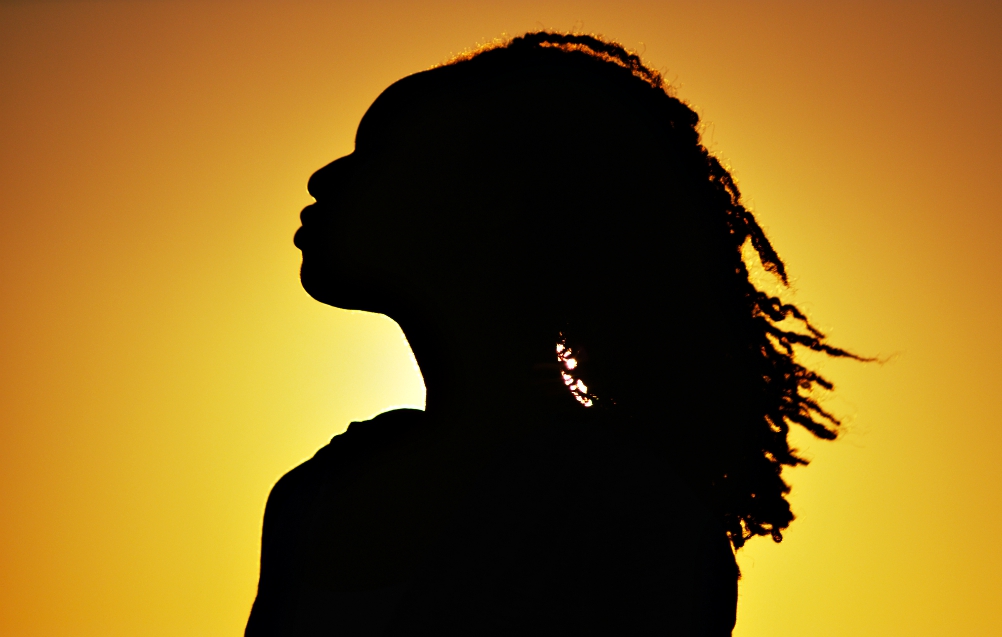
(Dreamstime/Mark Adams)
Earlier this month, I received a rather nasty email via my website. On the contact form, the sender stated her "Reason for Contact" as "Affronted Catholic." She had been to NCR's website and read my post-election column. Offended, in her words, by my "egoism" and by my writing "an article not praising God for electing a pro-life president to end the reign of terror of the Clinton couple in their rabid and demonic promotion of abortion," the sender proceeded with ad hominem attacks, including calling me "anti-Christ as in Anti-Life and Pro-Feminist."
I posted screenshots of the email to my social media pages with some comments of my own. (I find people who go to my inbox to personally attack me are emboldened by the belief that their words will never be made public, so I make it public.)
A friend who read it said the part of the sender's message that made her blood pressure rise the most was her commanding me to "meditate on the fact that you are less a historian and godly writer and more a black power-driven woman." My friend was angry at the sender's implication that these attributes are mutually exclusive, or even that they cannot co-exist in equal parts, that I couldn't be pro-Black Power, a knowledgeable historian, and godly.
I'm not sure from the sender's non-standard use of capitalization and punctuation whether she meant I was more a Black woman driven by power or a woman driven by Black Power.
If the former, she could be trying to say that being Black and a woman and feminist makes me less like God, and I wonder which parts — my skin, my gender or my values — she would like me to abandon to recreate myself more in God's image.
If the latter, she must think that to love or even think positively about blackness, to not be ashamed of it, is something ungodly and that after meditating about my position, I should repent.
Either way, she's wrong.
The sender's email made me think about the book A Black Nun Looks at Black Power, by Blessed Sacrament Sr. Mary Roger Thibodeaux. Published in 1972, the book contains Thibodeaux's poetic meditations about the Black Power movement she was witnessing in and outside of the church. Amid pressure from Black separatists who believed Black people's allegiance to Catholicism (and Protestant Christianity), which more ideological activists defined as a white supremacist religion, was self-hatred, and amid fear among Catholics that Black Power was a foreign threat invading an otherwise unified church in which race didn't matter, Thibodeaux challenged the church to consider Black Power a means to make the church more just, more in step with God.
Advertisement
While I don't associate myself or my ideologies with the Black Power movement of the 1960s and '70s, I do embrace the idea of Black Liberation. Black Liberation would look like Black people around the world being free to embrace their racial, national and ethnic identities and express them without fear of violence, discrimination or backlash. It would look like an end to wealth and health disparities. It would look like Black people walking away from encounters with law enforcement alive and unbeaten as often as white people do; Black people wearing natural hairstyles to any school or work environment without being teased, warned or reprimanded; the bankruptcy of the skin-bleaching industry; Black history as a standard unit of the K-12 curriculum; more Black people in place as the publishers, editors, producers, directors and writers telling stories of Black people. It would look like all those people who demand that we be colorblind seeing blackness as fully human as whiteness (and seeing whiteness as whiteness and not the default).
I embrace Black Liberation because I am freedom- and justice-minded, as the Bible repeatedly tells me God is. The God I worship is not white supremacist, Black separatist, or colorblind. This is the God Thibodeaux wanted the church to recognize.
I checked out Thibodeaux's book from the library a few years ago and took photos of the passages that resonated most with me. I end this column with her still apropos words:
Black Power is not foreign to Yahweh and Yahweh is not foreign to Black Power. There is a covenant of friendship there. The cause of Justice is and always will be in strict accordance with the Will of God.
[Mariam Williams is a Kentucky writer living in Philadelphia. She holds a Master of Fine Arts degree in creative writing and certificate in public history from Rutgers University-Camden. She is a contributor to the anthology Faithfully Feminist and blogs at MariamWilliams.com. Follow her on Twitter: @missmariamw.]
Editor's note: Don't miss Mariam Williams' column, At the Intersection. We can send you an email every time a new one is posted. Click on this page and sign up.







